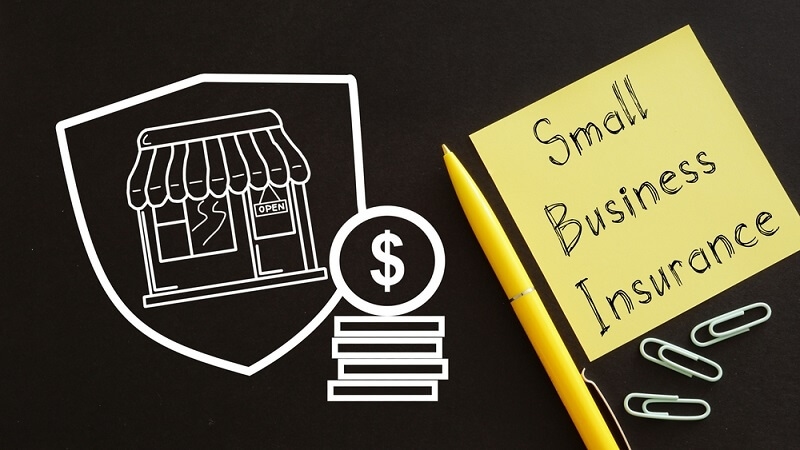
Owning a small business in the U.S. can be full of exciting options, but it also comes with significant risk. If you run a local coffee shop, consulting business, retail store, or freelance service, having the right business insurance is vital to help protect your assets, employees, and future. This guide discusses business insurance essentials for U.S. small business owners: general liability, property, and workers' compensation—the three main types of insurance protection available to address the unexpected.
If you want to understand general liability insurance for small businesses in the U.S., research small business property insurance costs, or decipher workers' compensation insurance requirements state by state, we'll explain what each type of coverage includes, the importance of having it, and how to make the right decisions regarding it.
Even the most judicious business owners cannot control every aspect of their company. Accidents, lawsuits, natural disasters, employee injuries, and unforeseen interruptions can all be substantial financial setbacks to a company. Without insurance, you may not recover from even a single incident.
Insurance is more than protection; it is an investment for a business owner.
What the right coverage will do for your business:
For any owner, learning about business insurance for U.S. small businesses is step one in the plan for the long run.
General liability insurance for small businesses in the U.S. is the most basic yet critical coverage. It protects your business against third-party claims for:
Almost every business has a risk of being sued, and whether you are a client-facing business or your business is B2B, general liability insurance provides the first line of defense.
Cost considerations:
Premiums vary based on industry risk, revenue, and location, but general liability insurance is one of the most accessible and affordable forms of coverage available to small businesses.
Small business property insurance covers your building (if owned), inventory, furniture, fixtures, and equipment in case of damage or loss from fire, theft, vandalism, or some natural disasters.
Even when renting, you may be responsible for fixtures or improvements, making this insurance essential.
If you're leasing, your landlord may require proof of property insurance. For owners, it's crucial to rebuild and replace quickly.
Workers’ compensation insurance provides medical care, disability benefits, and wage replacement to injured employees. It also protects employers from lawsuits from employees for workplace injuries.
The workers’ compensation insurance thresholds vary greatly from state to state. In some states, just one employee means you must have the coverage; in others, the thresholds are much higher.
Example:
If you don’t follow your state’s workers’ compensation insurance rules, you could pay significant fines, as well as legal penalties, and open yourself up to lawsuits.

A Business Owner’s Policy (BOP) combines general liability and property insurance into one convenient and cost-effective package, often with optional add-ons.
Add-ons may include:
BOPs are customizable and perfect for small businesses with low-to-moderate risk exposure that want comprehensive protection at a manageable price.
Imagine a fire forces your café to shut down for three months. You're not making money, but your bills (and employees) still need to be paid. This is where business interruption insurance comes in.
Business interruption insurance explained: It doesn’t cover the physical damage itself—that's property insurance’s role—but fills the income gap so you can survive financially while recovering.
This coverage is often added to a property or BOP policy and is vital for service-based and location-dependent businesses.
Also known as Errors and Omissions (E&O) insurance, professional liability insurance in the U.S. covers legal claims from clients who allege your service caused them financial harm due to:
Even the most competent professionals can make honest mistakes. This insurance protects your reputation and finances from lawsuits, regardless of whether the claim is valid.
While general liability, property, and workers’ comp are foundational, other types of insurance may be essential based on your business type, size, and industry.
Selecting the right mix of coverage begins with evaluating your risks. Ask yourself:
Insurance costs depend on numerous variables, including
Small business property insurance costs can be affected by location, building age, and type of equipment insured. Plan for insurance as a fixed cost of doing business—it’s part of your risk management strategy.
Avoid these common pitfalls:
Proper insurance planning isn’t about checking a box—it’s about protecting what you’ve built with care.
Small businesses form the backbone of the U.S. economy but are also uniquely vulnerable to financial risks. The right insurance coverage turns unexpected disruptions into manageable bumps in the road. By understanding business insurance for U.S. small businesses, including general liability insurance for small businesses in the U.S., small business property insurance costs, and workers’ compensation insurance requirements state by state, you can make informed, confident decisions to protect your enterprise.
You can start by reviewing your current policy (or lack thereof), identifying your business risks, and speaking with a licensed agent. With a solid insurance plan, you can focus on what matters most—growing your business with peace of mind.
This content was created by AI